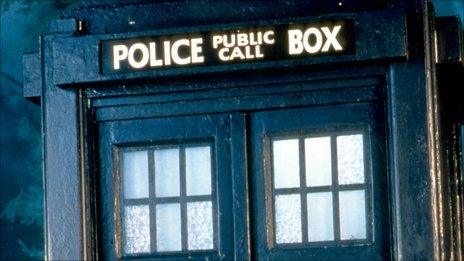Doctor Who: How the TV show's first writer became lost in time
- Published

Catherine Tate and David Tennant return for Doctor Who's 60th anniversary in November
Doctor Who's first writer could finally be recognised 60 years after he helped launch the hugely-popular series.
Anthony Coburn penned the first four episodes of the sci-fi drama in 1963 - a story called An Unearthly Child.
But after his second story did not air, the writer has been seen as a minor figure among some Doctor Who fans.
However, a campaign to erect a memorial to Coburn in his home town of Herne Bay, Kent, is gathering pace a month ahead of the show's 60th anniversary.
David Tennant will be returning as The Doctor for three special episodes in November - six decades after Australian-born Coburn introduced the first Doctor to television screens.
Coburn had earlier been approached to write for a new BBC TV children's science fiction series aimed at bridging the gap between Grandstand and Juke Box Jury on a Saturday afternoon.
He had a good pedigree in writing BBC dramas, including Maigret and Dr Finlay's Casebook, but the proposed show took his creative skills in a different direction.
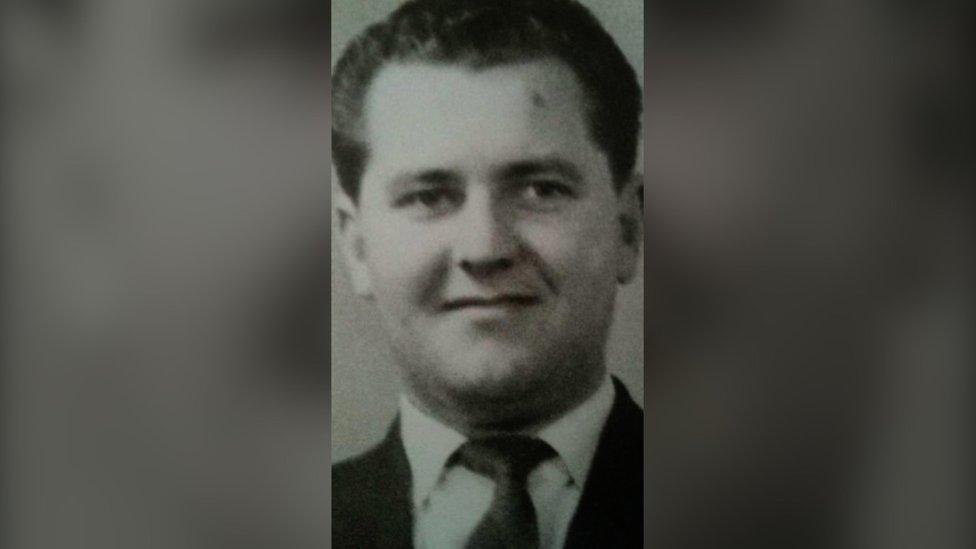
Anthony Coburn wrote the first Doctor Who story in his Herne Bay home
The first episode of An Unearthly Child broadcast on 23 November 1963, the day after John F Kennedy's assassination.
It introduced the character of The Doctor, his three travelling companions, and his time and space machine, the TARDIS, stuck in the form of a British police box.
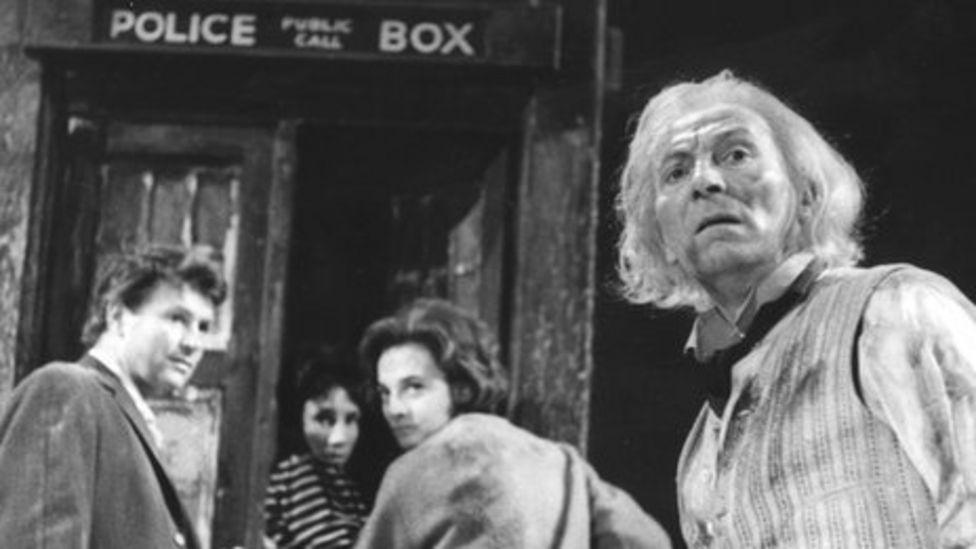
An Unearthly Child by Anthony Coburn was the very first Doctor Who story to be broadcast
Despite his successful launching of the series, An Unearthly Child proved to be Coburn's only televised Doctor Who story.
He had also written the series' second story, The Robots (also known as The Masters of Luxor), but that was never televised.
That story was replaced by The Daleks, who exterminated their way into becoming the Time Lord's most famous and fearsome adversary.
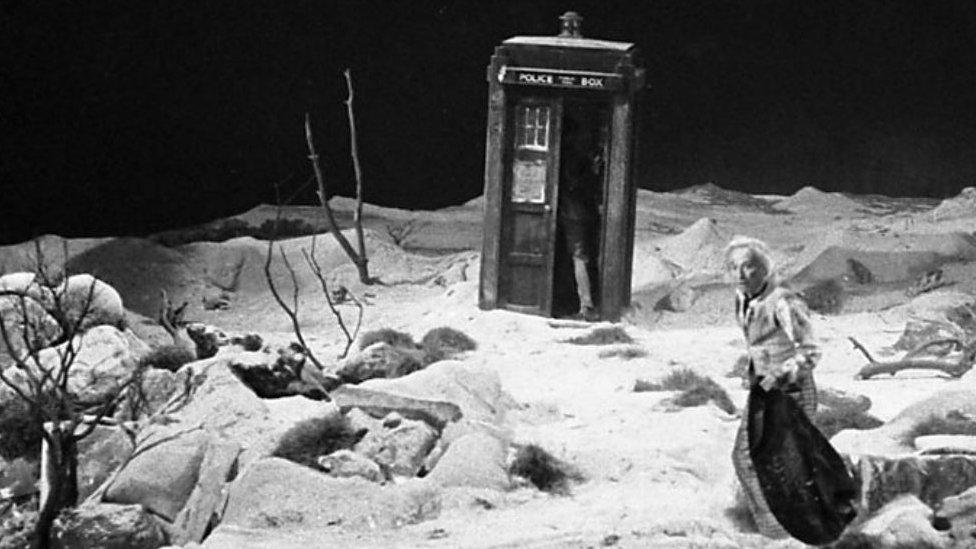
The Doctor took his first trip in the TARDIS in Anthony Coburn's story
Other Doctor Who writers, such as Terry Nation, who created the Daleks, and Russell T Davies, who revived the show in 2005, are well-known figures.
But Coburn remains a largely forgotten man, Doctor Who fans say.
Jason Onion, a fan and Herne Bay resident, has been campaigning for many years to get a fitting memorial to the show's first writer in his home town.
He made his own full-sized TARDIS replica and wanted it erected on the town's seafront.

Who was Doctor Who's very first writer?
Anthony Coburn was born in Australia in 1927
He moved to Britain in the 1950s and became a BBC staff writer
He wrote for Maigret and Dr Finlay's Casebook
He wrote the first ever Doctor Who story - An Unearthly Child - broadcast in November 1963
His second Doctor Who story did not air and was replaced by The Daleks
He was co-creator of 70s drama Warship
Coburn produced the original pilot episode of The Onedin Line
He died in Kent in 1977

Mr Onion said he believed it unfair that Coburn's name is not widely remembered alongside the first Doctor, William Hartnell, the show's first producer Verity Lambert, and the creator of the Daleks.
He said: "Tony Coburn's achievements go beyond Doctor Who, writing the last Maigret and giving Brian Blessed his first TV role. He was hard-working and committed to his writing every day."
He added: "Getting some sort of memorial in Herne Bay would be wonderful.
"I believe it's important for communities to identify with their heritage in all its forms and that includes TV heritage.
"It would allow a sense of place and pride in Herne Bay's achievements."

Anthony Coburn's second story was replaced by The Daleks, who became the show's most popular monsters
Richard Bignell, a Doctor Who historian, believes Coburn played a significant role in sowing the seeds of the programme's success.
He said: "Although the major elements that would go on to form the core of the series were devised within the BBC, as the scriptwriter for the first story, Coburn was the one who really put the flesh on the bones of the idea and how it would work dramatically.
"Many opening episodes of a new television series can be very clunky as they attempt to land their audience with too much information about the characters, the setting and what's going to happen, but Coburn was very reserved in how much he revealed, preserving all the wonder and mystery."
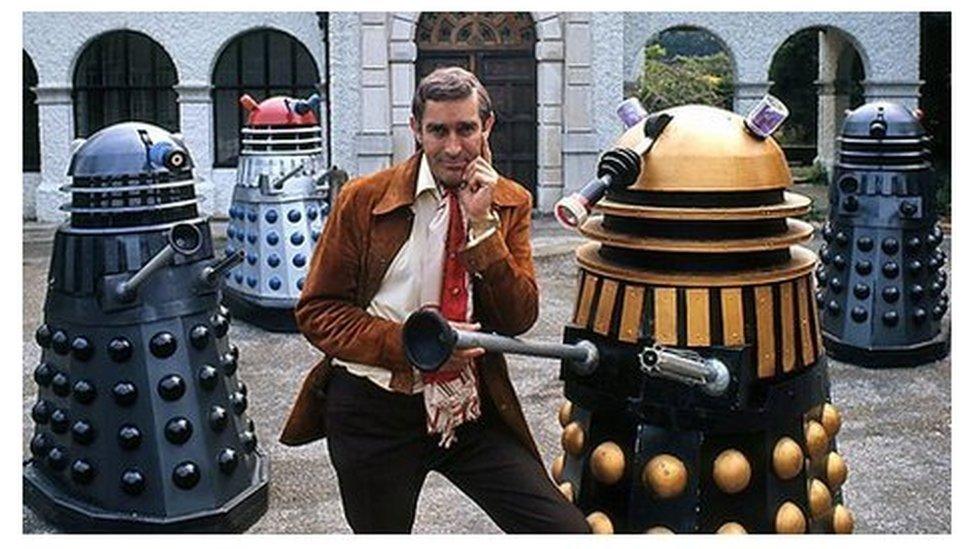
Terry Nation was honoured with a blue plaque in 2013 for creating the Daleks
Dan Watkins, a Herne Bay local councillor, said a Doctor Who memorial would be great for the town.
He said: "This could take the form of the iconic blue TARDIS.
"So I'm working with Jason to find a suitable location for the memorial, which will be of great interest to both Herne Bay locals and Doctor Who fans from around the world."
A spokesman for Canterbury City Council, which looks after tourism in Herne Bay, said: "We very much acknowledge the contribution Mr Coburn made both locally and to the history of Doctor Who".

Follow BBC South East on Facebook, external, on X, external, and on Instagram, external. Send your story ideas to southeasttoday@bbc.co.uk, external.
Related topics
- Published27 August 2023

- Published24 May 2023
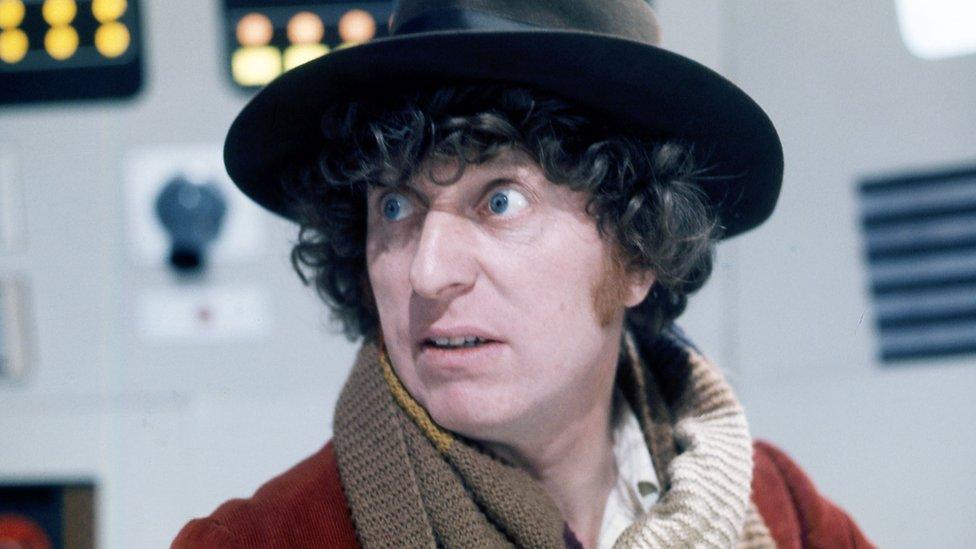
- Published21 April 2023

- Published25 December 2022
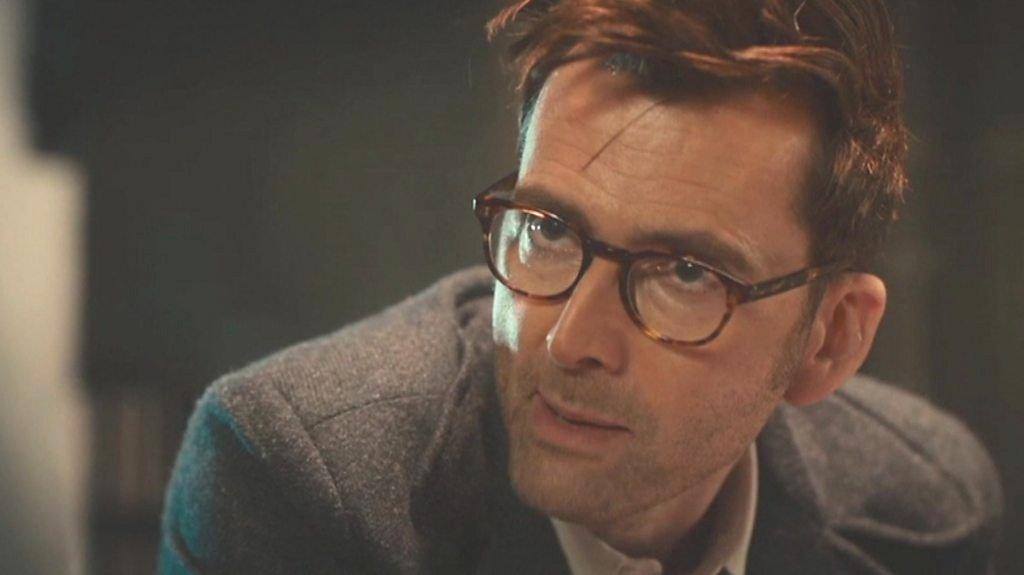
- Published24 October 2022

- Published20 November 2013
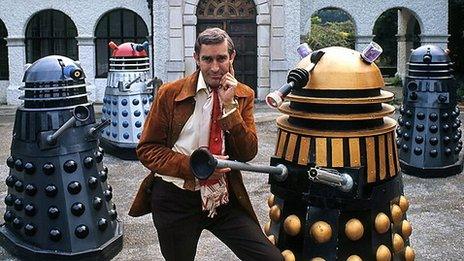
- Published16 May 2011
